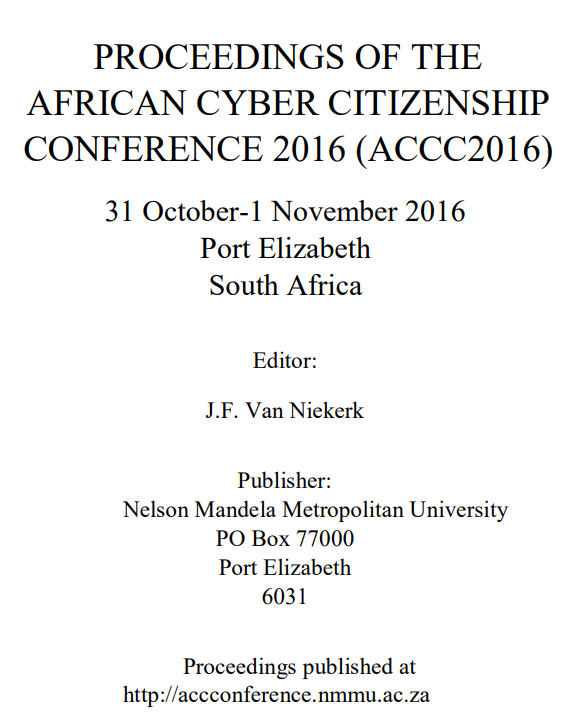Using personas to understand city residents’ information needs and evaluate city information services

01 November 2016
Nelson Mandela Metropolitan University
English
Conference paper
Africa
In increasingly complex cities, residents have information needs relating to accommodation, utilities, healthcare, public safety, transport, training, and employment. These information needs are met by different providers, including city governments. To be effective, such information services must be inclusive and provide for the specific needs of residents. So providers of information services need tools for understanding the information needs of diverse city dwellers and designing effective information services. Personas are one such tool, used in software design. A persona is a hypothetical archetype, constructed through a rigorous process, based on empirical induction. Personas are used to assist software designers to envision users, as a communication tool, and evaluating the design of the software.
This research investigates the process of using a grounded theory approach to construct personas representing different kinds of city residents and reflects on the potential for personas to lead to better-designed city information services. Interviews were conducted with purposely selected participants at two sites in Johannesburg and these were used to construct five personas with different information needs. These personas were then used to evaluate online municipal services provided by the City of Johannesburg and to make recommendations for improvements. The paper reflects on the process of constructing the personas, as well as the value of using personas to understand the information needs of city residents and evaluate the effectiveness of information services.
Abstract based directly on original source. Back to the SmartCity.ZA collection.


Comments